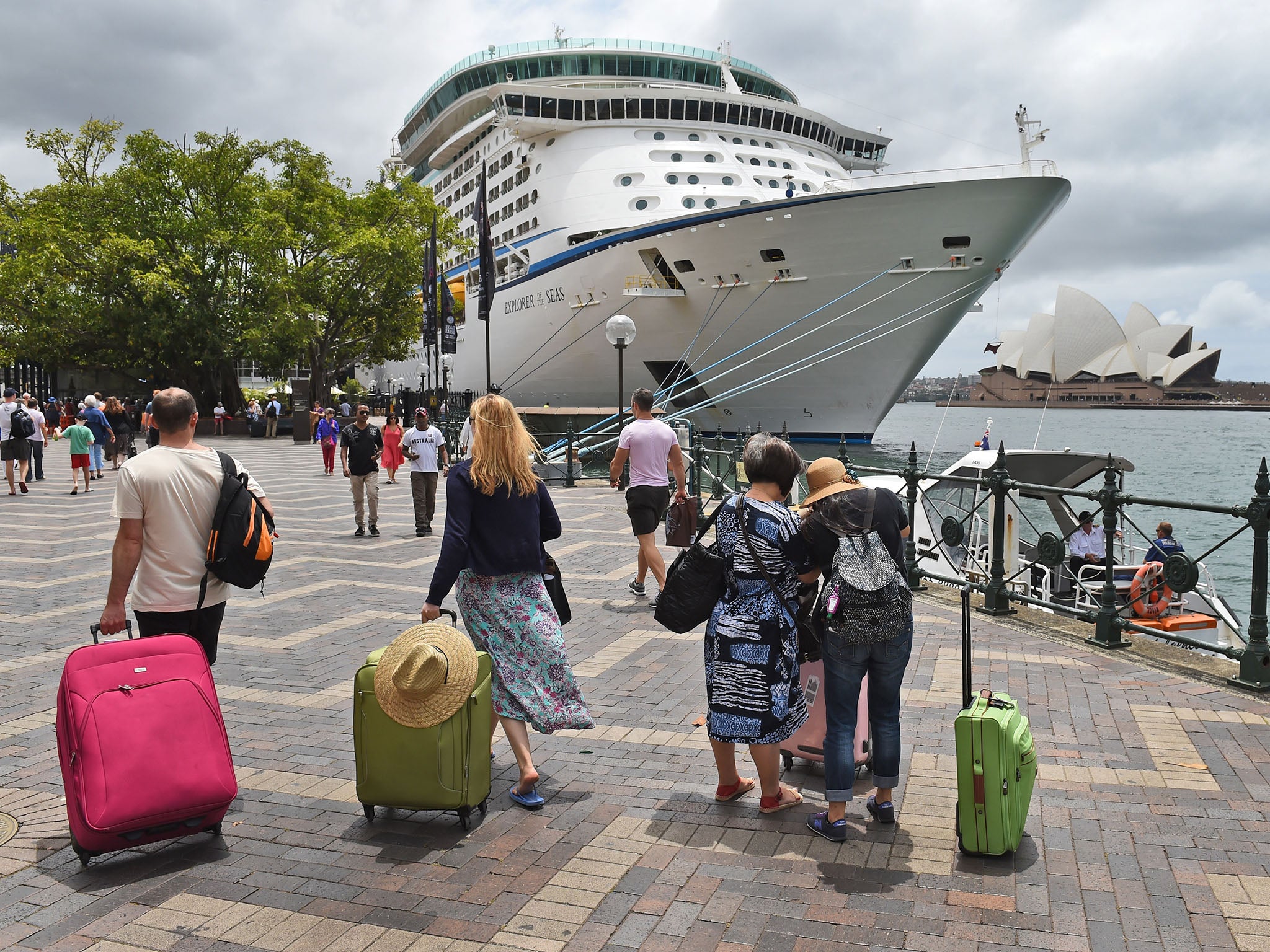Cruise ships: Why people are signing up to become full-time seafarers
'You follow the sun around the world, you have dance partners, you meet different people, you have constant company'

Your support helps us to tell the story
From reproductive rights to climate change to Big Tech, The Independent is on the ground when the story is developing. Whether it's investigating the financials of Elon Musk's pro-Trump PAC or producing our latest documentary, 'The A Word', which shines a light on the American women fighting for reproductive rights, we know how important it is to parse out the facts from the messaging.
At such a critical moment in US history, we need reporters on the ground. Your donation allows us to keep sending journalists to speak to both sides of the story.
The Independent is trusted by Americans across the entire political spectrum. And unlike many other quality news outlets, we choose not to lock Americans out of our reporting and analysis with paywalls. We believe quality journalism should be available to everyone, paid for by those who can afford it.
Your support makes all the difference.In days of old, when seafarers got shipwrecked, scurvy or succumbed to both, the great sage Dr Samuel Johnson observed: “Men go to sea before they know the unhappiness of that way of life”.
“A ship,” he said, “Is worse than a gaol. There is, in a gaol, better air, better company, better conveniency of every kind; and a ship has the additional disadvantage of being in danger.”
Things seem to have changed slightly – as was revealed this week when The Independent reported on the life of Leonard Berney, one of the first British officers to liberate Bergen-Belsen.
Mr Berney became a wealthy clothing manufacturer. Then in 2009, at the age of 89, he embarked on a new adventure: living full-time on a cruise ship.
The veteran boarded The World, built in 2002 to be a vessel from which passengers never had to disembark – they could simply buy one of the 165 permanent berths, called “residences” and, if they wished, spend the rest of their days sailing the Seven Seas.
Mr Berney lived permanently on board until his recent death, aged 95, from a heart attack in the Caribbean – visiting more than 100 ports a year, voting with his fellow residents to decide where the ship would go next.
If that sounds unusual, maybe it won’t be for much longer. It seems, people are now scrambling to join the ranks of full-time cruise ship seafarers. Look at the reaction to the latest innovation from cruise company Crystal Cruises: 48 purpose-built residences, to be bought as permanent or second homes, on each of its three new ships. “Initial demand has been phenomenal,” said a spokeswoman.
The happiness of Lee Wachtstatter and about three others who are already permanent Crystal Cruises ship inhabitants had been noted.
“It’s a lovely way of life for someone who has been widowed,” said the spokeswoman. “You follow the sun around the world, you have dance partners [Crystal has ‘ambassador hosts’ who dance with the ladies] you meet different people, you have constant company.”
You may also need lots of money. A spokeswoman for The World said prices ranged from $1.5m dollars (£1m) for a one-bed studio to $15m dollars for a three-bedroom top deck penthouse. Plus annual “ownership charges” of about 12 per cent of the residence price.
This makes your shipmates a rather niche crowd.
“Some have had their own superyacht and just decided The World was a more hassle-free option,” said the spokeswoman. So forget about hard tack and grog.
“Your wine preferences are committed to memory by our Sommelier,” says The World’s publicity blurb. “The Portraits restaurant is a gastronomic nirvana…”. The spokeswoman did stress that allowance was made for the boredom that might set in on a long sea voyage.
“You don’t have to dine at Michelin-star level every day,” she said. “There’s also a poolside grill, a steakhouse, a deli…”
About one thing, though, she was adamant: The World residents were not shuffling around the ship’s dance floor before shuffling off this mortal coil. “We have residents in their thirties. The average resident is in their mid-sixties.
“The ship has a retractable watersports marina, the only seaborne full-size tennis court, its own golf pro. You can play nearly every course in the world on the on-board virtual driving range…”
Nor was this a “do Venice in an afternoon” experience. The World spends nearly twice as long in port as at sea. In November, residents will be venturing inland into the tropical jungle of Borneo. Previous “expeditions” have included Papua New Guinea in 2014, and becoming the largest passenger ship to complete the Northwest Passage in 2012.
Residents eventually leave, said the spokesman, on average after about six years. The arrival of grandchildren might entice them back to shore, or “The ship takes about three years to completely circumnavigate the globe. People may feel they have had a great time, seen a lot of places, and now it’s time to move on.
“But I don’t know of anyone selling quickly because they regretted it.” Certainly not Mr Berney. He never discovered “the unhappiness of that way of life”.
“I get to go to interesting places,” he told IBTimes UK in 2014. “The people are very friendly and intelligent. There is absolute comfort.
“I miss virtually nothing about living in a normal house. Rough seas are unpleasant, but not unbearably so.” Besides, The World has, we are told, very effective stabilisers.
Join our commenting forum
Join thought-provoking conversations, follow other Independent readers and see their replies
Comments